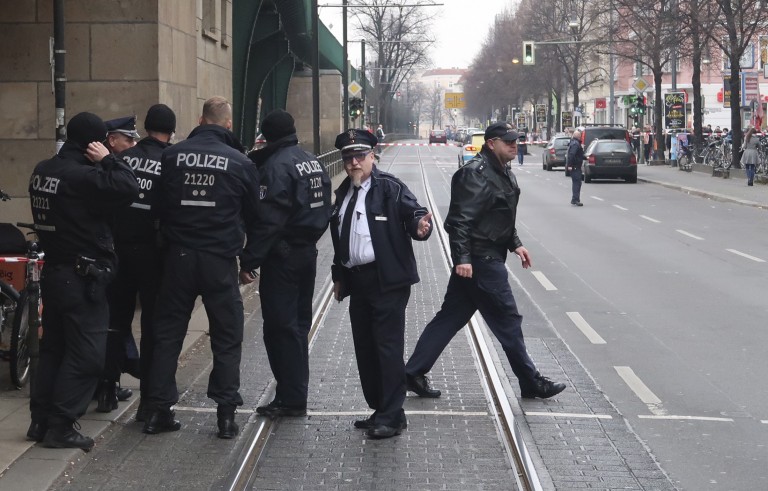HARI SREENIVASAN: Anis Amri, the man suspected of carrying out Monday's attack on a Berlin Christmas market, was well known to German authorities. He was under surveillance for six months this year and was slated for deportation. But his home country of Tunisia refused to accept him.
Joining me now for more on how Amri allegedly was allowed to pull off this attack is Peter Neumann, founder and director of the International Center for the Study of Radicalization and Political Violence. He joins us tonight from Munich.
What's the latest in the investigation?
PETER NEUMANN, International Center for the Study of Radicalization: Well, the latest is that they are still trying to track down where exactly he is right now, and they are conducting raids on different places that are connected to the jihadist scene. It is now known that he was part of a wider network of jihadists in Germany, and they are raiding different places that they seem to be believing that they are connected to the scene.
HARI SREENIVASAN: Tell me, how is it possible the German authorities not just had this person on the radar but were scheduling him for deportation? How did it get this far? How did they miss the signs?
PETER NEUMANN: So, there are a couple of things.
The first thing is capacity. There are around 550 jihadists in Germany who are believed to be potential terrorists. In order to surveil a single person 24 hours a day, you need about 20 officials. It's not possible.
And so, you know, authorities need to make judgment calls all the time — who do they consider to be acutely dangerous and who do they consider to be less dangerous. And this one may have fallen through the net.
The second point is federalism. Police and intelligence services are essentially on a state-by-state basis. And this guy traveled from a lot of different states to different states, and some of the information may have slipped through the cracks there.

HARI SREENIVASAN: What about the possibility he was radicalized in an Italian prison? That's something one of his brothers had said.
PETER NEUMANN: Yes, he was in an Italian prison about four years, and it may well be that he was radicalized there. He went further up north to Germany afterwards. He shouldn't have been able to do that because he was claiming asylum in Germany, and coming from Italy, that claim should have been refused immediately.
And so, basically, the whole system has failed. And I think it's all down to the fact that Germany is not really used to being the target of terrorist attacks. It's a little bit like America before 9/11. Germans are quite naive still about terrorism. We haven't been confronted with the kind of terrorist attacks other countries have been confronted with, and the whole system has not been geared up to confront this kind of threat.
HARI SREENIVASAN: Now, post-9/11, the American system geared up, to use your phrase. I mean, how does Germany's sensitive history with the surveillance state play into all of this?
PETER NEUMANN: That's a very good point because ultimately, after the end of the Second World War, Germans before reeducated to be against surveillance and to be pacifists. And guess what? America and the ally succeeded. Germans by and large are against surveillance and they are pacifists.
And that means that when being confronted with this kind of threat, a lot of reactions by politicians but also by society are very much against kind of confronting this threat head on. I very much hope that after this incident, the pendulum doesn't swing entirely the other way, but that we are able to have a reasonable debate about what kind of measures are really necessary to confront this rather than staying one side or the other.
HARI SREENIVASAN: Do you see changes happening now in the interest of public safety that's swinging the pendulum?
PETER NEUMANN: I think there is a lot of debate right now. A lot of people are very unhappy with how the authorities have dealt with this case. There is a sense of real outrage, and there is a sense that the system isn't working and that we really need to think about how to make this work.
And I believe it's necessary to basically have something like the 9/11 Commission that you had in America after 9/11 that basically goes through I've aspect of government policy and says, this works, this doesn't work, and how do we construct a comprehensive counterterrorism strategy?
We don't have that in Germany right now. We don't have a counterterrorism strategy. We have a lot of authorities working on different things. We need a comprehensive thing, and I hope that's what's going to come out of this.
HARI SREENIVASAN: All right. Peter Neumann — thanks so much for joining us.
PETER NEUMANN: Thank you.











